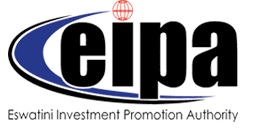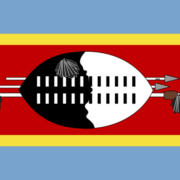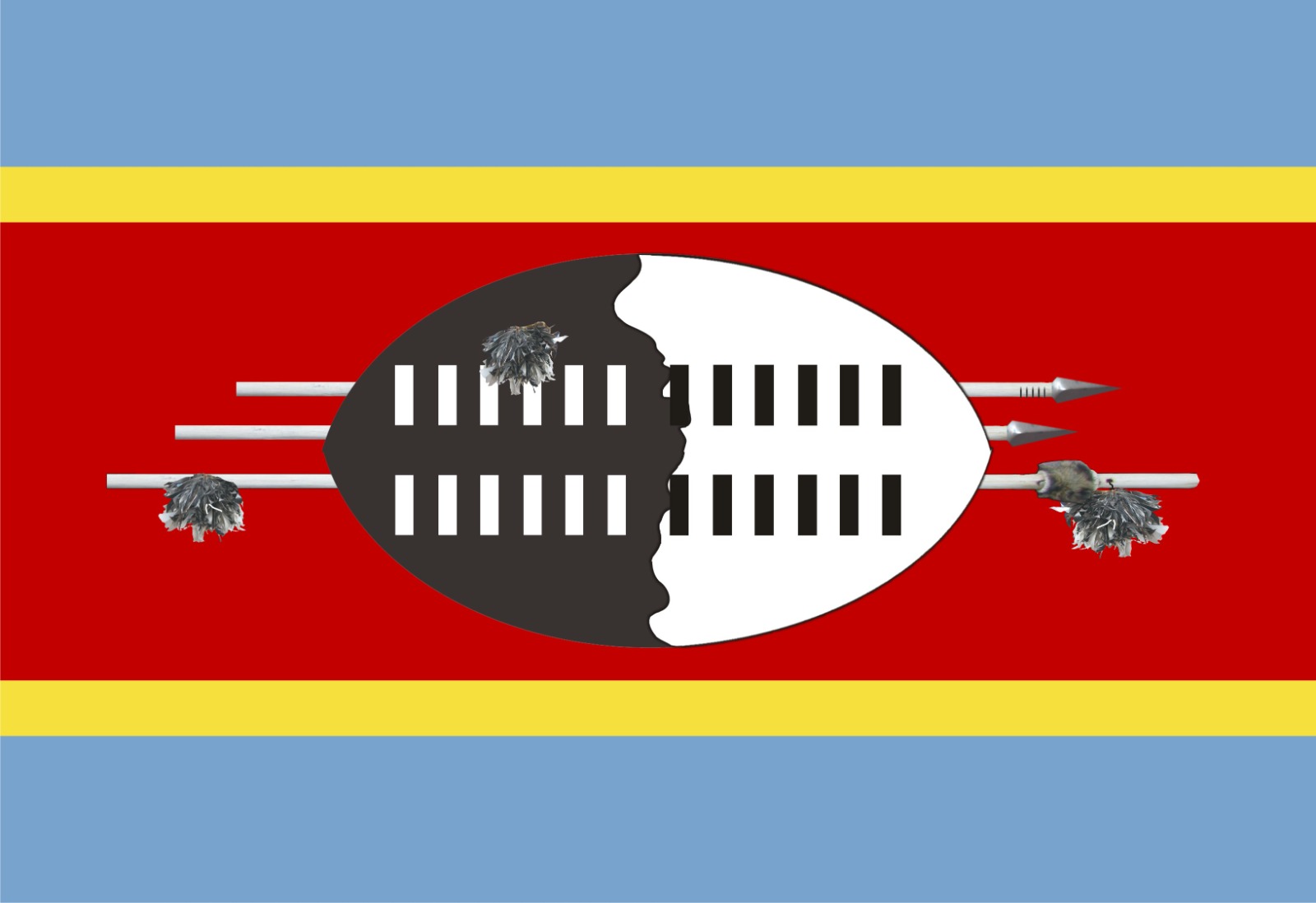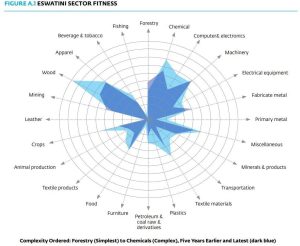TRADE & INVEST IN ESWATINI
TRADE & INVEST IN ESWATINI

Eswatini Investment Promotion Authority
COUNTRY PROFILE
Eswatini, officially Kingdom of Eswatini, was formally known as Swaziland. It is a landlocked country in the eastern flank of South Africa, where it adjoins Mozambique. It extends about 110 miles (175 km) from North to South and about 80 miles (130 km) from west to east at its largest dimensions.
The country’s capital city is Mbabane. Strategically situated between South Africa and Mozambique, the Kingdom of Eswatini offers a safe and peaceful atmosphere for business and leisure. The Kingdom boasts of natural advantages including exquisite landscape, rich natural resources, and relatively well-developed infrastructure in Africa. Its natural beauty and preserved culture coupled with a contemporary lifestyle make living and working in the country an enjoyable experience.
The country has an estimated population of 1.2 million people with its official languages being Siswati and English.
INVESTMENT OPPORTUNITIES
Manufacturing
- Electrical Equipment: cables and plugs t.c.
- Manufacturing of agricultural irrigation systems
- Academic and industrial stationery products
- Packaging and building materials
- Automotive components
- Footwear and high-end textiles and performance gears
- Fast-Moving Consumer Goods
- Pharmaceuticals
- Polymer containers and other products mainly from resins
- Food and food derivatives and of confectionary products
Agriculture & Agro-Processing
Eswatini’s agricultural sector accounts for about 11% of GDP and employs about 25% of the labor force. The country Is a net exporter of agricultural product, with the main exports being sugar, cotton, tobacco, and beef. Opportunities exists in the:
- Establishment of small and large scale Agro-processing
- Dairy production – increase milk production, dairy
- High Value cash crops; Garlic, ginger, tomatoes, peppers, sweet corn, citrus, and other fruit.
- Horticulture and floriculture
- Large Scale Commercial Livestock production
- Investment in full value chain for Agro-processing infrastructure, such as cold storage and packaging facilities.
- Other innovative Agricultural products of high commercial value
Information Communication Technology
- Innovative Fintech Solutions
- High – end procurement solutions and
- Efficient E filing systems
- Cyber security: IT solution against cyber-attacks in the financial sector
- Components Assembling and Hardware Manufacturers (Tracking devices, Routers and Computers)
Tourism
- Hotels Facilities (Conferencing and Entertainment)
- Water theme parks
- Consolidation of the big 5 game parks
- Leisure Resorts
Mining
Eswatini exhibits various mineral deposits. A multi-disciplinary geoscience mapping project including aeromagnetic, magnetic, and radiometric mapping to identify mineral target found the following.
- Vast gold deposits (Nsignizini in the north to Malalotja)
- Iron Ore deposits (Ngwenya to Makhonjwa Hills)
- Copper-Nickel-Platinum group elements (Siphocosini, Mhlambanyatsi and Ngwenyameni)
- Diamondiferous Kimberlitic Pipes (Dvokolwako)
- Purchase and importation of minerals for refinery and beneficiation and value addition for exportation
- Availability of mineral deposits, coal, and iron ore, create opportunity to manufacture primary iron products, like pig iron ore pellets, up to the stage of steel products.
- Mineral extraction: confirmed available minerals include iron ore, gold, coal, diamond,e.t.c.).
Energy
- The country is well-endowed with renewable energy resources, particularly solar, and has the potential to meet a substantial proportion of its domestic energy demand through the full exploitation and utilization of this technology.
- Utility – Scale Solar PV Plants (SDG Investor Map)
- Fuel Suppliers (Production of wood chips)
- Biomass (40MW)
- Coal – Fired Power Station
The Kingdom of Eswatini has relatively well diversified exports which are:
The Eswatini Advantage
- 100% Foreign ownership in priority and strategic sectors
- Generally good employer – employee relations and efficient dispute resolution
- Skilled and trainable workforce
- Eswatini is a low-risk country (politically and socially stable) according to the Global Peace Index 2023.
- Efficient cargo terminal to service neighbouring countries and raw material imports and reasonable distance to ports (Maputo Port and Durban Port)
- Strong Investor Protection Framework (signatory to MIGA, and ICSID)
- Signatory to regional and global preferential market access agreements totaling over 1 billion addressable market size.
- The country has quality roads, rail, and communication infrastructure. (Global Competitiveness index 2019)
INVESTMENT INCENTIVES & GUARANTEES
a) General Fiscal Incentives
- Developmental Approval Order which is a corporate tax concession at the maximum rate of 10% for ten years, applicable only in Manufacturing, Mining, Tourism, and International Services with a ten year exemption on withholding.
- Duty free access for capital goods (machinery and equipment) imported into the country for productive investments are exempt from import duties.
- Duty free access on raw materials to manufacture goods to be exported outside the Southern African Customs Union (SACU).
- Machinery initial allowance is 30% of the total cost of machinery or plant brought for the first time to be used in manufacturing.
- Building initial allowance of 30% of the actual cost of Industrial building, for the first year and 4% thereafter.
- Infrastructure initial allowance is 30% of the cost incurred of infrastructural machinery, plant, or facilities, to be used in the provision of infrastructural services.
b) General Non-Fiscal Incentives
- Foreign exchange mechanisms allow full repatriation of profits and dividends of enterprises operating in the country.
- Five-year work permits available for directors.
- EIPA implementing a one stop shop service facility to have all approvals investments under one roof.
c) Special Economic Zones Incentives for investment
A wide range of incentives for special economic zones including a perpetual 15% tax concession amongst others.
TRADE
The Kingdom of Eswatini has an extensively diversified export sector of its exports which are destined to developing and developed markets. These are some of the reasons why one should consider Eswatini as your preferred sourcing location:
- High quality products due to adoption of global standards (ISO, Global Gap)
- Good soils and climatic conditions (four seasons in one year) for agricultural products
- Guaranteed capacity to supply all year round for agricultural based products
- Cheaper pricing due to access to preferential trading terms in a number of global markets:
| Trade Agreement | Market Size & Access |
|---|---|
| 1. Southern African Customs Union (SACU) Members: Eswatini, South Africa, Botswana, Namibia, Lesotho |
• 55 million population, with South Africa as major trading partner • Allows for Free movement of goods within the customs union |
| 2. Southern African Development Community (SADC) Members: Eswatini, Angola, Botswana, Lesotho, Madagascar, Mauritius, Namibia, Tanzania, Mozambique, South Africa, Zimbabwe, Zambia, Malawi, Seychelles, DR Congo |
• 238 million population • Free trade area with preferential market access for goods and further integrating to customs union • Highlighted State are not implementing the FTA |
| 3. Common Market for Eastern and Southern Africa (COMESA) Members: Eswatini, Angola, Uganda, Kenya, Ethiopia, Eritrea, Burundi, Rwanda, Egypt, Libya, Zimbabwe, Zambia, Madagascar, Mauritius, Comoros, Congo, Somalia, Sudan, Malawi |
• 374 million population • Free trade area with preferential market access further integrating to a customs union. • Eswatini is the only SACU member state currently in COMESA |
| 4. Tripartite Free Trade Area (COMESA-EAC-SADC) Members: 27 countries in COMESA-EAC-SADC |
• Combined population of over 500 million and GDP of over US$800 billion |
| 5. African Continental Free Trade Area (AfCFTA) Members: all 54 African countries |
• Combined population of about 1.2 billion • Free trade area |
| 6. SADC – European Union Economic Partnership Agreement (SADC-EU EPA) Members: EU 27 |
• Almost 500 million population • Duty free entry for Eswatini products to EU 27 • Simplified rules of origin including bilateral cummulation |
| 7. SACU + Mozambique – United Kingdom Economic Partnership Agreement (SACUM-UK EPA) Members: United Kingdom |
• Access to the UK with a population of over 65 million • Duty free entry for Eswatini products to the UK |
| 8. SACU-European Free Trade Association (PTA) Members: SACU countries and Switzerland, Iceland, Norway, Lichtenstein |
• 12.8 million population • Preferential market access for Swaziland products mostly in agriculture |
| 9. African Growth Opportunity Act (AGOA) Members: United States |
• 300 million population • Over 6,500 duty free tariff lines • Duty free market access untill 2025 • Third country fabric provision |
| 10. Eswatini – Republic of China (Taiwan) Economic Cooperation Agreement (ECA) Members: Eswatini and Taiwan Bilateral Trade agreement |
• 24 million Taiwan population • Duty free market access to over 199 products lines • Flexible rules of origin |
| 11. Southern Africa Customs Union (SACU) and the Southern Common Market Preferential Free Trade Agreement (SACU – MERCOSOUR PTA) Members: Brazil, Argentina, Uruguay, Paraguay |
• 241 million population • Preferential market access |
| 12. Generalized System of Preferences (GSP) | • Eswatini, as beneficiary country enjoys preferential market access to developed countries under GSP • Scheme enables developing countries to access markets of industrialized countries |
- Exporters enjoy duty free import incentives to enhance their competitiveness in pricing
- Proximity to major shipping ports (Maputo, Durban, and Johannesburg).
The Eswatini Investment Promotion Authority (EIPA) is well poised to provide all the necessary information to facilitate buyer-seller missions and set up business-to-business (B2B) matchmaking meetings as required.
Visit the EIPA website for more information: https://investeswatini.org.sz/



